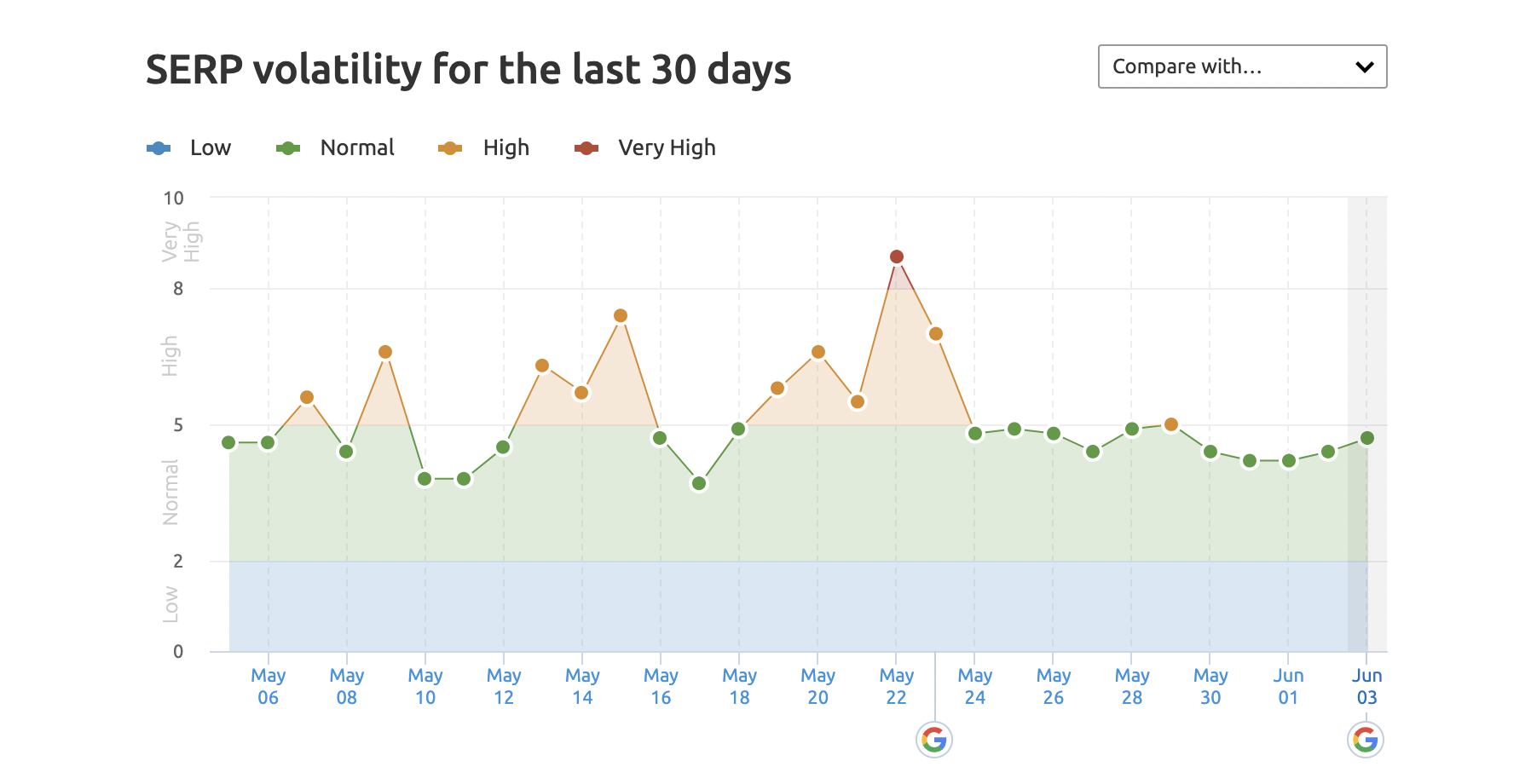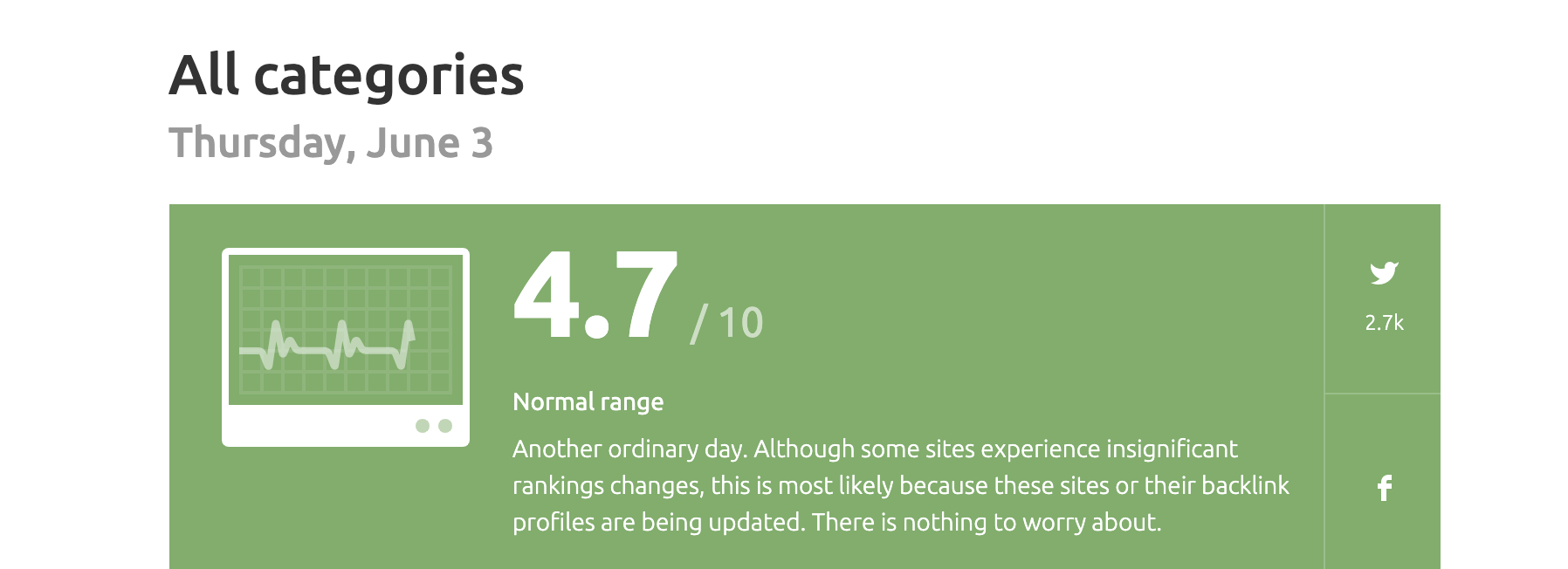News of a Google broad core update is always met with a vague sense of trepidation at Red Evo HQ. We practice squeaky-clean SEO that’s designed to be fully compliant with Google’s best-practice guidelines, but you never know what’s going to happen when Google decides to make sweeping changes to their search algorithm.

Case in point: Google deployed another core update back in May 2020, and the next 3 days were total chaos. Big sites like spotify.com, eventbrite.co.uk and nypost.com bounced up and down the Search Engine Results Pages (SERPs), entire industries lost visibility and countless SEO professionals locked themselves in dark basements -- frantically pouring over their rank-tracking data to try and work out what Google had changed.
The answer? Well, the honest truth is that we still don’t know. Google is famously tight-lipped about the inner workings of their search algorithm and nobody’s managed to work out exactly what a broad core update involves.
All we do know is that:
- They involve “significant changes” to the way Google’s search algorithm assess web content
- They generally take a few days (or weeks) to roll out fully
- Rankings can fluctuate wildly while broad core updates are “bedding in”

How Do Core Updates Differ From Normal Algorithm Tweaks?
Google makes thousands of minute adjustments to its algorithm every year, but these smaller updates normally target a specific type of site or content.
Recent examples include updates designed to reduce the rankings of spammy payday loan websites, and updates designed to reduce the rankings of websites that use irritating interstitial popups.
But a broad core update tends to affect the majority of SERP results. Marketing managers and c-suite executives of all stripes wake to find their content pinging up and down the rankings without any semblance of pattern or logic, and there's really no guessing who's going to fall foul of an unintended rankings drop.
To use a tired analogy, it's the difference between pole and net fishing, in the sense that it's less targeted, more general, and much more likely to accidentally ensnare the very websites Google claims to protect.
What's The Impact So Far?
Luckily, Wednesday's update seems to be fairly low-impact. SEMRush shows low SERP volatility:

And reports that yesterday was a fairly normal day for most sites:

Yesterday is when we'd have expected things to be at their most volatile. But that doesn't mean that you won’t notice some major changes in the days and weeks to come.
Generally speaking, core algorithm updates are designed to ensure that Google is serving people useful and authoritative content so people who comply with the latest guidelines and focus on publishing high-quality content tend to flourish. But again, it’s worth pointing out that some broad core algorithm updates can penalise top-tier sites too.

What Do I Do If My Rankings Go Up?
Pat yourself on the back! Chances are that you’ve been doing everything right and that you’re reaping the rewards of engaging with a top-notch SEO agency. Don’t count your eggs just yet though: There’s another broad core update scheduled for July so you’ll want to keep plugging away at your content strategy to ensure that you stay ahead of the curve.
You do have a content strategy don't you? If not, find someone to help you build one ASAP because creating a constant stream of high value content is the only thing that'll keep you on-track and growing.
What If My Rankings Have Taken A Hit?
Don’t panic. Lost rankings aren’t a sign that you’ve done something wrong and there’s no reason to assume that your site’s being actively penalised. Chances are that Google have just started evaluating a key ranking factor in a slightly different way, and you’ve lost out on rankings as a result.
You can gnash your teeth and scream about how unfair it is (we recommend at least 10 minutes of this) but once you’re done panicking, you’ll probably want to sit down and:
- Double-check that your backlink profile is squeaky clean and packed with good citations
- Take a good, long look at your content. Is it really as good as it could be, or have you been coasting along for a while now?
- Take a look at your keyword profile in Search Console. Have you been targeting high value keywords? And what could you do to make up for lost ground here?
Google's Danny Sullivan has posted some targeted advice for webmasters on the Google Search Central blog, which may be of interest.

Struggling To Pick Yourself Up?
If you're looking for some hands-on help, we're always happy to help you figure out the best way to get your website back on track. We offer best-in-class SEO services to a range of B2B clients and we’re a dab hand at rebuilding lost rankings.
We focus on future-proof strategies that are designed to keep you winning despite these constant updates to Google’s core algorithm and while we can’t promise to insulate you from their ramifications, we can make sure that you’re always moving forward.

